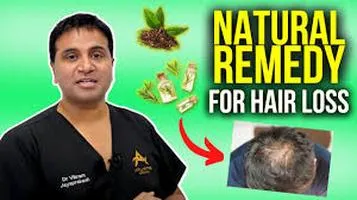Natural Remedies for Hair Loss
Natural remedies for hair loss focus on using holistic approaches to support hair health and promote regrowth. Key ingredients often include essential oils like rosemary and peppermint, known for their ability to stimulate blood circulation in the scalp. Aloe vera is another popular choice, celebrated for its soothing properties and ability to balance pH levels and cleanse pores. Nutritional support is also crucial, with biotin, zinc, and omega-3 fatty acids playing significant roles in strengthening hair. Herbal supplements, such as saw palmetto and ginseng, are believed to block DHT, a hormone linked to hair loss. Regular scalp massages can enhance these treatments by improving blood flow and nutrient delivery. These natural methods emphasize patience and consistency for optimal results.

Hair loss is a concern that affects millions of people across the globe, transcending age, gender, and ethnicity. While medical treatments and surgeries like hair transplants offer solutions, they often come with high costs and potential side effects. Natural remedies, on the other hand, provide a more holistic and accessible approach to managing hair loss. This review aims to explore the efficacy, benefits, and limitations of various natural remedies for hair loss.
Understanding Hair Loss
Before delving into natural remedies, it's important to understand the common causes of hair loss. Factors such as genetics, hormonal imbalances, poor diet, stress, and environmental pollutants can contribute to the weakening and eventual loss of hair. Addressing these underlying causes is crucial for any treatment to be effective, whether natural or medical.
Popular Natural Remedies
1. Aloe Vera
Aloe Vera is renowned for its soothing and moisturizing properties. It contains enzymes that help repair dead skin cells on the scalp, promoting healthy hair growth. The proteolytic enzymes in Aloe Vera also help to stimulate dormant hair follicles. Regular application can reduce dandruff and scalp inflammation, which are common contributors to hair loss.
Usage: Apply fresh Aloe Vera gel directly to the scalp and leave it on for about an hour before washing it off with a mild shampoo. Repeat this process 2-3 times a week for best results.
2. Coconut Oil
Coconut oil is a powerhouse of fatty acids, especially lauric acid, which penetrates the hair shaft and reduces protein loss. It also has antifungal and antibacterial properties, which can help keep the scalp healthy and free from infections.
Usage: Massage warm coconut oil into the scalp and hair, leave it on for at least an hour, preferably overnight, and then wash it off with a mild shampoo. This should be done 2-3 times a week.
3. Onion Juice
Onion juice is rich in sulfur, which boosts collagen production and helps in the regeneration of hair follicles. While the smell is a major downside, many users report significant improvements in hair thickness and growth.
Usage: Extract juice from one onion and apply it to the scalp. Leave it on for 30 minutes to an hour before washing it off with a mild shampoo. Use it twice a week for optimal results.
4. Rosemary Oil
Rosemary oil is known for its ability to improve cellular generation. When applied to the scalp, it can stimulate blood circulation, which in turn promotes hair growth. Studies have shown that rosemary oil can be as effective as minoxidil, a common hair growth treatment, but without the side effects.
Usage: Mix a few drops of rosemary oil with a carrier oil like olive or coconut oil and massage it into the scalp. Leave it on for at least an hour before rinsing it off. Use this remedy 2-3 times a week.
5. Green Tea
Green tea is rich in antioxidants that can help prevent hair loss and stimulate hair growth. The key component, epigallocatechin gallate (EGCG), has been shown to promote hair growth in various studies.
Usage: Brew 2-3 green tea bags in hot water and let it cool. Apply the tea to the scalp and hair, leave it on for about an hour, and then rinse it off. This can be done 2-3 times a week.
Limitations and Considerations
While natural remedies offer a plethora of benefits, they are not without limitations. The efficacy of these treatments can vary widely from person to person, depending on the underlying cause of hair loss. Natural remedies usually require a longer time to show visible results, demanding patience and consistency.
Moreover, while these remedies are generally safe, some individuals may experience allergic reactions or scalp irritation. It's advisable to conduct a patch test before full application. Consulting with a healthcare provider for a comprehensive diagnosis and treatment plan is also recommended, especially if the hair loss is severe or sudden.
Conclusion
Natural remedies for hair loss provide a viable, cost-effective alternative to medical treatments. Ingredients like Aloe Vera, coconut oil, onion juice, rosemary oil, and green tea offer various benefits, from nourishing the scalp to stimulating hair growth. However, the effectiveness of these remedies can vary, and they require consistent use and patience.
While these natural treatments can be an effective part of a hair care routine, they are most beneficial when combined with a healthy lifestyle that includes a balanced diet, regular exercise, and stress management. Ultimately, the journey to healthier hair is a holistic one, requiring a multi-faceted approach and a good dose of patience.






